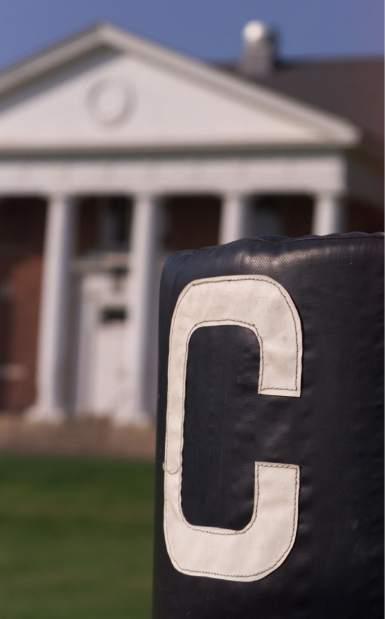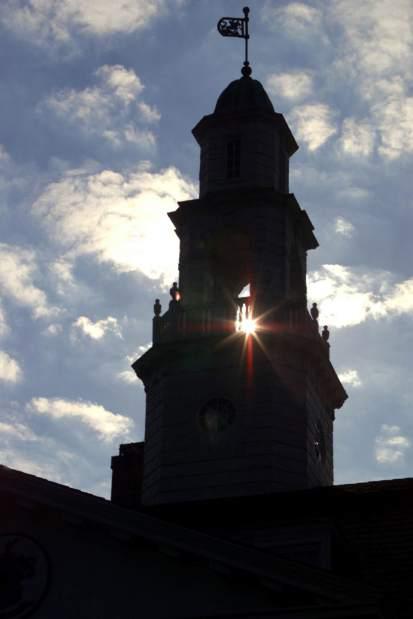|
State laws regarding investigation, prosecution of child abuse under scrutiny following Choate report
By Matthew Zabierek
WALLINGFORD — Following the release of a report that revealed several incidents of alleged sexual abuse at Choate Rosemary Hall since the 1960s, state officials and legal experts say state laws regarding the reporting of child abuse need to be clarified to allow claims to be investigated after the victim turns 18 years old. State law currently allows the state Department of Children and Families to investigate reports of child abuse until the victim turns 18 and is considered an adult. Once an individual reaches adulthood, DCF historically hasn’t “accepted reports relating to potential victims if that person is no longer a minor,” said Julie Fay, a lawyer who specializes in school law at Hartford-based law firm Shipman & Goodwin. Fay said existing state laws do not provide guidance for how DCF should investigate claims from an adult who alleges abuse as a child, “creating question as to how to handle information relating to suspicions that involve children who are now adults.” “We need to make sure that we’re crystal clear about how we respond to child abuse in Connecticut,” said Mickey Kramer, an associate child advocate with the state Office of the Child Advocate. “If the law isn’t clear, then how can we expect DCF to respond consistently and reliably?” Kramer noted that many students — including special education students — remain in secondary education after turning 18. “The expectation should be that all students are protected from that kind of behavior,” she said, adding her office will advocate for the state legislature and other agencies to clarify current laws. “I think everyone’s concern is that there’s someone still out there that poses a threat to children,” Fay said. In July and December 2016, Choate Rosemary Hall filed reports of faculty sexually abusing students to DCF, however, the agency couldn’t accept the claim, “indicating that the reason was that the former student was no longer a minor,” according to a report released last week detailing decades of alleged sexual assaults at Choate Rosemary Hall. Independent investigator Nancy Kestenbaum compiled the report at the request of Choate’s Board of Trustees. The report, which documents abuse by 12 teachers dating back to the early 1960s, stated that Choate “did not make any reports to DCF regarding adult sexual misconduct prior to 2010,” after the documented abuse occurred. Police Chief William Wright said his department also did not receive any reports of sexual misconduct from the school in that time, which he said is “very concerning.” Wright said Choate officials met with him just before the report was released publicly earlier this month to brief him. The department is considering a criminal investigation, but is waiting for other police officials to review the report before making a decision. Since the 1960s, state law has stipulated that teachers in both public and private schools report cases when they have “reasonable cause to suspect or believe” that a child under the age of 18 has suffered abuse. It wasn’t until 2013, after the abuses mentioned in the report occurred, that the school first added a section to its faculty handbook describing mandatory reporting obligations, according to the report. In some cases, Choate administrators knew of the abuse and allowed the abuser to resign before helping the teacher get a job at another school, according to Kestenbaum’s report. In one case, Edward Shanahan, who served as headmaster from 1991 to 2011, was informed by a female student in 2000 that William Cobbett, a faculty member at Choate for 41 years, attempted to kiss her at his house. Shanahan told Kestenbaum that he “understood” that Corbett kissed the student. The school did not notify police or DCF of the incident at the time. In another case, Choate did not inform any government authorities of an incident in which former teacher Jaime Rivera-Murillo was accused by a 17-year-old girl of forcing her to have sex in a swimming pool during a 1999 school trip to Costa Rica, according to the report. Rivera-Murillo denies the accusation. Both Shanahan and Edmondson “Ed” Maddox, then Dean of Faculty, were aware of the incident and Shanahan also prepared a report of the incident for the school’s Board of Trustees, according to Kestenbaum’s report. Shanahan told Kestenbaum that he “was usually guided by parents’ wishes regarding whether to” report child abuse to the government. Rivera-Murillo was terminated and went on to teach at several schools. He served as principal of Wamogo Regional High School in Litchfield until April 2016, when Choate informed the school of the allegations. If a mandated reporter doesn’t report an allegation, he or she could be charged with a misdemeanor in Connecticut and may be subject to criminal penalties and fines of up to $2,000, according to statute. Wright said that law enforcement could only charge an individual for not reporting, rather than Choate as an institution. Law enforcement would have to produce documentation or evidence that a mandatory reporter knew of abuse. No victims have contacted the department to report an abuse claim since the report was released, according to Wright. Anyone who has experienced sexual abuse at the school is encouraged to call local police at 203-294-2800. The statute of limitations for abuse of a child in Connecticut is 30 years, however, Wright said law enforcement is subject to the limitations that were in place at the time of the alleged abuse. Limitations can also depend on the severity of abuse, Wright added. Fay said an increasing number of private schools are conducting similar investigations into sexual abuse to “engage in critical self examination” and review past policies. Fay believes the reporting by private schools “signifies a new approach that schools are taking in trying to be transparent and acknowledge how things have been handled in the past to learn from it and do better.” The one difference between Choate’s report and those at other schools, Fay said, is the level of detail that was included. “I think, by and large, schools are trying to do the right thing,” Fay said. Other legal experts have been more critical. “They did it because they were forced to,” Paul Mones, a lawyer who represents victims of sexual abuse, told the New York Times. Mones noted that The Boston Globe ran a story about abuse at the school in October. “They saw the way the wind was blowing, and they knew they had to get out ahead of it,” he said. “These are smart people,” he continued. “They knew they had to do something.” Contact: mzabierek@record-journal.com
|
.
Any original material on these pages is copyright © BishopAccountability.org 2004. Reproduce freely with attribution.



